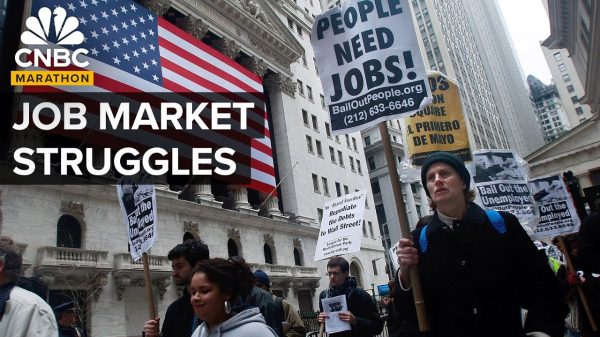Donovan Davis Jr. is a prisoner at FCI Coleman Satellite Federal Prison Camp and is expected to be released from the Federal Bureau of Prisons (BOP) on December 3, 2028. He was sentenced to 17 years in prison after he was found guilty by a jury on May 14, 2015 on one count of conspiracy to commit mail/wire fraud, one count of mail fraud, six counts of wire fraud and eight counts of money laundering. Davis has vigorously disputed the government’s case against him.
Since entering prison, Davis been productive with his time and has earned the respect of staff. Davis has a unique expertise as a heavy equipment mechanic and heavy equipment operator. He works roughly 40 hours per week in Coleman’s Facilities Department. According to a Progress Report, filed by his Case Manager, Juan Coriano, and Unit Manager, Paula Floyd, Davis does everything from repairing the UNICOR factory’s forklifts and the institutions zero-turn lawnmowers to trimming hundreds of trees and clearing the acreage surrounding the camp, the low security and medium security prisons as well as the penitentiary.
Davis, who has special permission from Coleman’s Facility Manager that he has permission to hold three Caterpillar backhoe and loader manuals so he can keep up with the operations and management of the heavy equipment used around the prison complex, one of the largest in the BOP. Davis has been credited with saving the BOP nearly $1 million by providing services which include land clearing, building training sites, fixing trucks and heavy equipment. In short, he has made productive use of his time in prison but he has also helped the BOP as there are no operators of heavy equipment in the private sector willing to work for under a dollar an hour.
During the pandemic, Davis, an African American with Type 2 diabetes, high blood pressure, asthma, obesity and sleep apnea, worried that he was at risk of an adverse reaction to COVID-19. In April 2022, then-Attorney General William Barr instructed the BOP to transfer minimum and low security inmates with underlying health conditions to home confinement for the both the safety of the prisoner, but also to reduce prison populations. The program was a success and nearly 50,000 inmates were transferred to home confinement with many of them completing their sentences at home without incident. The program was one of the most successful in BOP history and proved that many minimum security inmates could be housed safely outside of institutions. CARES Act home confinement ended in April 2023 with President Joe Biden declaring the pandemic over.
The BOP relied on medical directors at prisons to establish whether or not someone was eligible for CARES Act for health reasons, then the person had to have the support of both the case manager, who oversees the inmate’s life on a daily basis, and the warden. In November 2021, Davis had not yet served 50% of his sentence, a requirement the BOP added through a number of iterations on determining a criteria for home confinement, but he was very close at 46%. Davis also was listed by the BOP as being the least likely to reoffend and minimum risk for violence, a strict criteria used by the BOP to measure risk.
Having not met the requirements of amount of time served, Davis’ case was sent to the BOP’s Central Office in Washington, DC who reviewed the file and also, as a part of their protocol, reached out to the US Attorneys Office to let them know that Davis was being considered for home confinement. Central Office denied Davis’ application and since then he has been trying to figure out how this occurred. Earlier this year, Davis’ attorney Brian Horwitz, reached out to Assistant US Attorney Roberta Bodnar to inquire whether anyone at her office opposed Davis’ home confinement to which Bodnar responded in an email to Horwitz, “The BOP’s decisions on placement are entirely up to the BOP. I am not involved in that process.”
Davis’ wife, Christie Davis, thinks that her husband is being held in prison for the asset he has become to the agency through his heavy equipment work and knowledge. Christie told me, “Donovan loves the work he does there at Coleman because it gets him outside and it is interesting work for him, but I’m afraid it made him indispensable to the prison and may have cost him coming back home.”
“The only thing that makes sense is that he was denied because he’s saving them millions,” Christie said, “plus, he’s a man of color.”
In August 2022, Davis met the 50% time-served requirement set by the BOP and once again he was denied by Central Office, who was also re-reviewing all of earlier CARES Act cases. Based on a source within the BOP, “Davis was denied due to ‘public safety issues’,” says Horwitz, “which makes no sense. Davis has a community status security level and he’s being housed at a camp with no fence. He’s not a risk to anyone. They give him the keys to the Facility’s vehicles, and he’s allowed to roam the complex which is over 1,600 acres,”
“Mr. Davis was convicted of a nonviolent, white-collar crime,” says Horwitz, “and both of his co-defendants, who were more culpable than Mr. Davis in the fraud, have already been released from the BOP’s custody.” It should be noted that those co-defendants, who cooperated and did not go to trial, received significantly lesser sentences.
Christie states that race must have played a part. While there are no publicly available statistics on those who were granted CARES Act home confinement based on race, Christie believes there is something wrong with the way her husband’s case was handled. “Other inmates who were involved in larger schemes or drug cases are at home,” Christie said, “but they were as white as me and I can’t think that that played a role in Donovan’s case. Christie is a caucasian.
The BOP provided information on who was released under the CARES Act stating that of the 13,204 inmates transferred to home confinement under the CARES Act from March 26, 2020 through May 27, 2023, 8,779 (66%) were white, 3,900 (29.5%) were black, 399 (3%) were Asian / Pacific Islands and 126 (under 1%) were American Indian. [Note: According to the BOP, the population breakdown of inmates in custody as of November 11, 2023 is as follows: White – 57%, Black – 38.6%, Asian – 1.4% and Native American – 2.7%].
“The real issue is, Mr. Davis’s Constitutional right to equal protection is being violated,” says Horwitz. The 14th Amendment, protects inmates from the right to be treated differently from others similarly situated individuals because of their membership in an identifiable or protected class such as, race, religion, sex or national origin. Based on the similarly situated white inmates receiving home confinement, yet Mr. Davis—a black inmate—has been repeatedly denied home confinement, I believe that the BOP is applying the CARES Act in a discriminatory fashion.”
“He’s fixed equipment from all over… BOP busses from Miami,” says Christies said, “and the central office is rerouting heavy equipment from Terre Haute, Indiana, for him to repair. They’re denying him the CARES Act, so he can save them millions of dollars.”
According to Christie, Davis has staff members at the prison telling him to stop working, believing that that might have helped him gain home confinement. “If he fails to go to work that is a violation and could end up having him put in isolation at the Special Housing Unit,” Christie said, “it’s starting to look like something out of the movie Shawshank Redemption.”
In April 2023, Davis filed a civil lawsuit against the warden and BOP for failure to approve his home confinement under the CARES Act citing the facility’s lack of providing appropriate healthcare and safety measures to prevent the contagion of COVID-19 along with his meeting eligibility requirements for CARES Act. Specifically Davis states the “BOP be enjoined from its discriminatory practices” and that he be transferred to home confinement under the CARES Act (expired in April 2023). The government/BOP is set to respond to lawsuit in late November 2023.
Read the full article here













